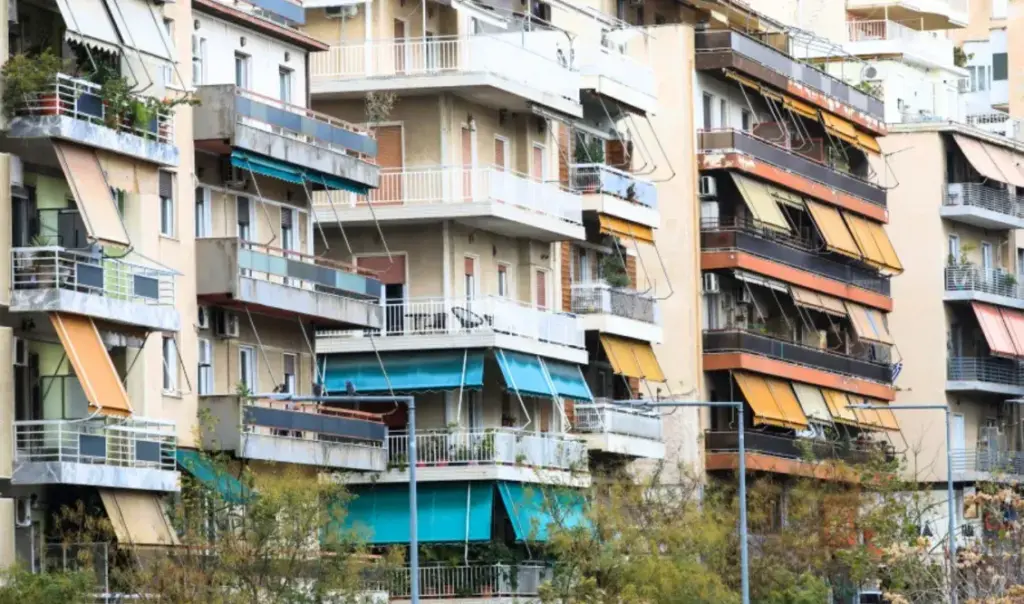Time is running out for the 950,000 beneficiaries of the rent refund, as they have until September 30 to complete code 081 in their tax declaration, which will unlock €800 in subsidies this coming November. This process applies to both primary and student housing and represents a lifeline for thousands of households across the country who, due to the housing crisis, struggle to find homes at reasonable prices.
The refund amount calculation is done automatically based on the tenant’s income tax declaration for the previous tax year. This declaration is taken into account as it has been finalized by the last working day of September of the payment year, meaning by September 30, 2025. This ensures that beneficiaries receive the refund based on the actual rental amounts they pay.
Three steps to secure your rent refund
In the remaining time, beneficiaries must carefully check certain points to ensure timely and correct payment of amounts:
1. Declaration of lease number: Those who have not declared their lease number can do so by submitting an amended declaration by September 30. If code 081 is not completed, the tax authority will search for the electronic lease through cross-references to complete the process.
2. Correct lease number: The lease number must refer to the latest lease renewal, except for 2025. That is, if the renewal was made in 2024, the number from that renewal must be used for submitting the refund application.
3. Pre-assessed declarations: Beneficiaries whose declarations have been pre-assessed must check if the lease number is correct and if the rental amount corresponds to the actual rent paid during the year.
Subsidies and tax deductions only with electronic rent payment from 2026
From January 2026, tenants of primary and student housing who continue to pay rent in cash will not be entitled to the subsidy. Additionally, property owners who receive rent payments “in hand” will be required to pay higher tax on these incomes. The measure aims at complete digitization of transactions, ensuring transparency and better control of rental market movements.
Specifically:
· Tenants who do not pay rent for primary and student housing through banks will lose the rent subsidy, even if they meet income or asset criteria. For example, a primary residence tenant paying €800 per month who continues to pay rent in cash from 2026 will be excluded from financial assistance. They won’t be entitled to a single euro from the annual rent refund. Note that the measure will be implemented from November, and specifically for this year it will be paid to tenants based on this year’s tax declarations.
· Taxpayers who rent properties and receive rent “in hand” will lose the 5% discount on gross rental income, which is calculated automatically without providing supporting documents. For example, a taxpayer receives €12,000 annually from rent currently paid in cash. If they continue to receive rent “in hand,” they will be taxed on the full €12,000 income and not €11,400, as the 5% discount on rental income will not apply.
· For businesses, the measure is not new, but from 2026 its implementation is significantly strengthened. Specifically, businesses that pay commercial rent without bank transactions, i.e., “in hand,” will not be able to deduct it as an expense from their gross revenues. This means rental costs will not reduce the company’s taxable income, leading to greater tax burden. In other words, even if a business regularly pays rent, if it doesn’t use bank transfer or other electronic transaction, the expense won’t be recognized for tax purposes. For example, a business paying €2,000 monthly for commercial space in cash will not be able to deduct the €24,000 paid in rent as an expense.
What amounts will rent refund beneficiaries receive
The maximum refund amount for primary residence reaches €800, increased by €50 for each dependent child. For student housing, the maximum refund amount is €800.
The income criteria are:
· Single: maximum income €20,000.
· Married / civil partnership: maximum family income €28,000, increased by €4,000 for each child.
· Single-parent families: maximum family income €31,000, increased by €5,000 for each additional child beyond the first.
Regarding asset criteria, family wealth value cannot exceed €120,000 for single-person households, with an increase of €20,000 for each additional member.




